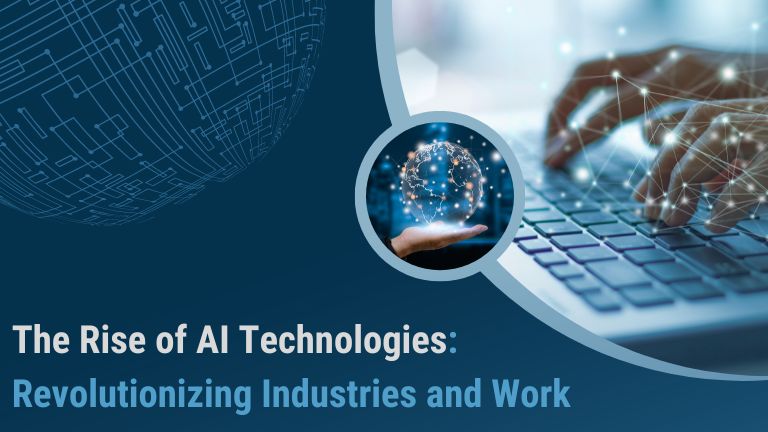The Rise of AI Technologies: Revolutionizing Industries and Work
Introduction
In recent years, the rapid advancement of artificial intelligence (AI) technologies has brought about a significant revolution in traditional industry practices and work processes. The integration of AI has enabled the automation of tasks that were previously deemed impossible, leading to increased efficiency across various sectors. However, the implications of AI extend far beyond mere automation, as these technologies are poised to become an integral part of every aspect of society. From healthcare to finance, education to entertainment, and even creative expression, the potential of AI continues to grow as research and development progress. Soon, AI will permeate fundamental aspects of our everyday lives, shaping the future in unprecedented ways.
Establishing the Artificial Intelligence Fund
It is within this context that, in partnership with the MIT Media Lab and the Creative Destruction Lab, Adaptive Lab will establish an Artificial Intelligence Fund to advance such research and development. The funds will primarily used to support academics and individuals who are focus on understanding how AI can transform society rather than simply automating tasks. We believe that AI must wield by society at large if it is to succeed as a transformative force in our world.
The Impact of AI on Society
The integration of AI into society has already begun, and its potential is vast. One area where AI is already making a difference is healthcare. AI can utilize to identify individuals with a predisposition for certain diseases or predict the risk of developing conditions like Alzheimer’s. This early detection can lead to more effective treatment and improved healthcare outcomes.
Similarly, AI can have a profound impact on transportation and urban planning. Autonomous vehicles, driven by AI, have the potential to revolutionize the way we commute. Imagine a world where people can rely on self-driving cars or efficient public transportation systems, reducing traffic congestion, pollution, and creating cleaner environments that foster the growth of nature and recreational spaces.
The Future of Transportation
Another exciting example of how AI is being utilized in transportation is the use of drones and self-driving cars. In the future, you may be able to summon a drone or autonomous car to pick you up and transport you anywhere you want or need.
The Challenges and Opportunities of AI
While AI presents numerous opportunities, it also poses challenges. One common misconception is that AI will single-handedly solve complex human problems, such as world hunger or global warming. However, the current capabilities of AI are still limit to relatively simple tasks. Complex problems that require intricate solutions will continue to demand human intervention and collaboration.
The Impact on Employment
Furthermore, concerns arise regarding the impact of AI on employment. While AI automation may replace some jobs, it also has the potential to create new opportunities. For instance, the advent of ride-hailing services like Uber has resulted in the creation of jobs in the field of driver less cars.
Opinions vary on the benefits of AI on employment. Some believe that AI will cause unemployment, while others argue that it has the potential to create new jobs and increase productivity in a competitive global market. Meanwhile, some law experts claim that by automating
